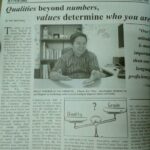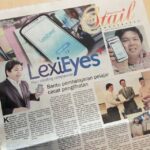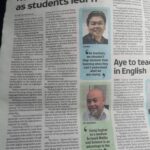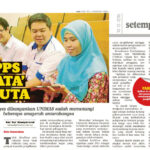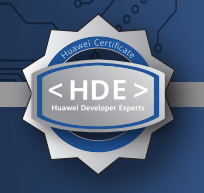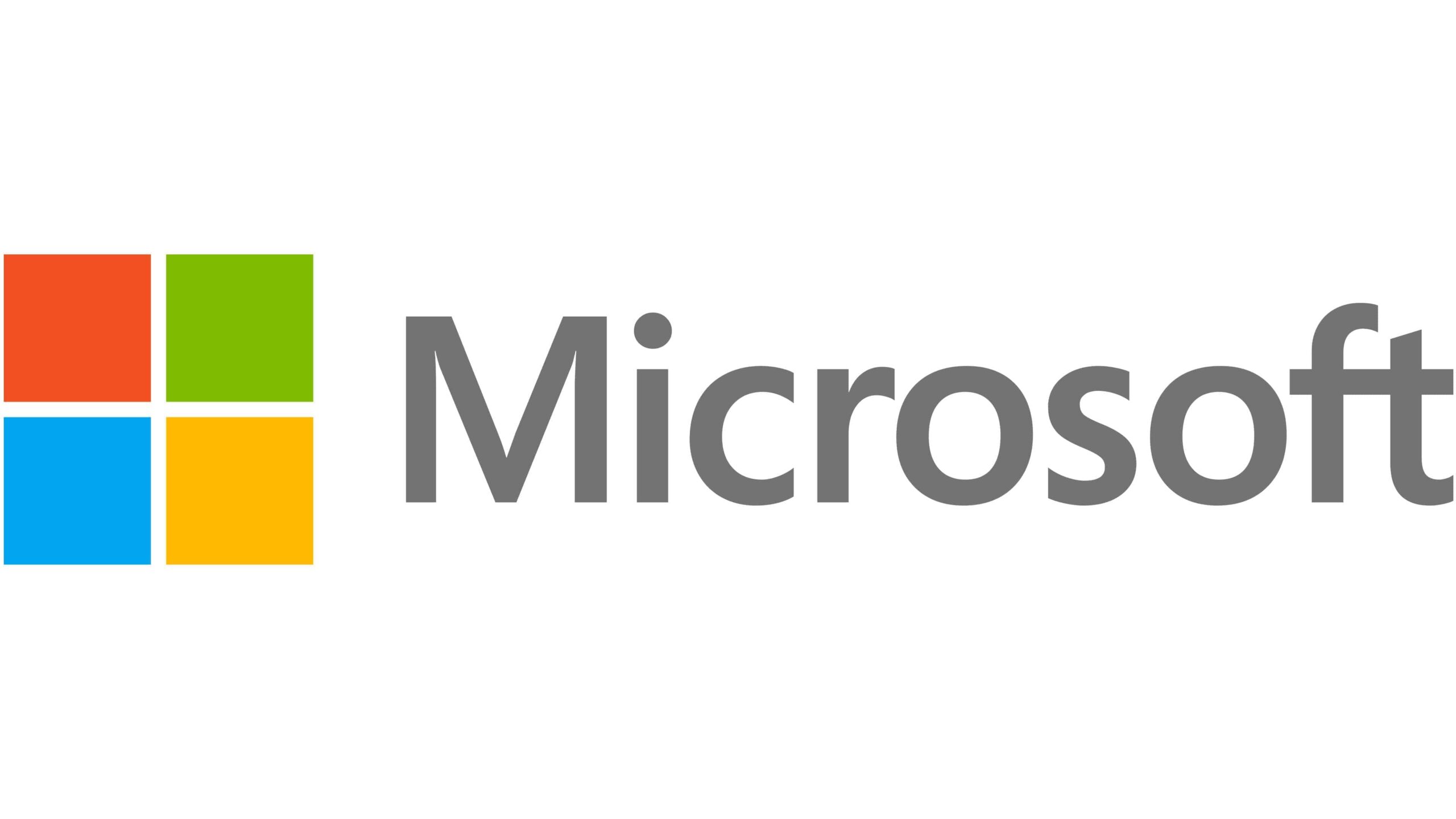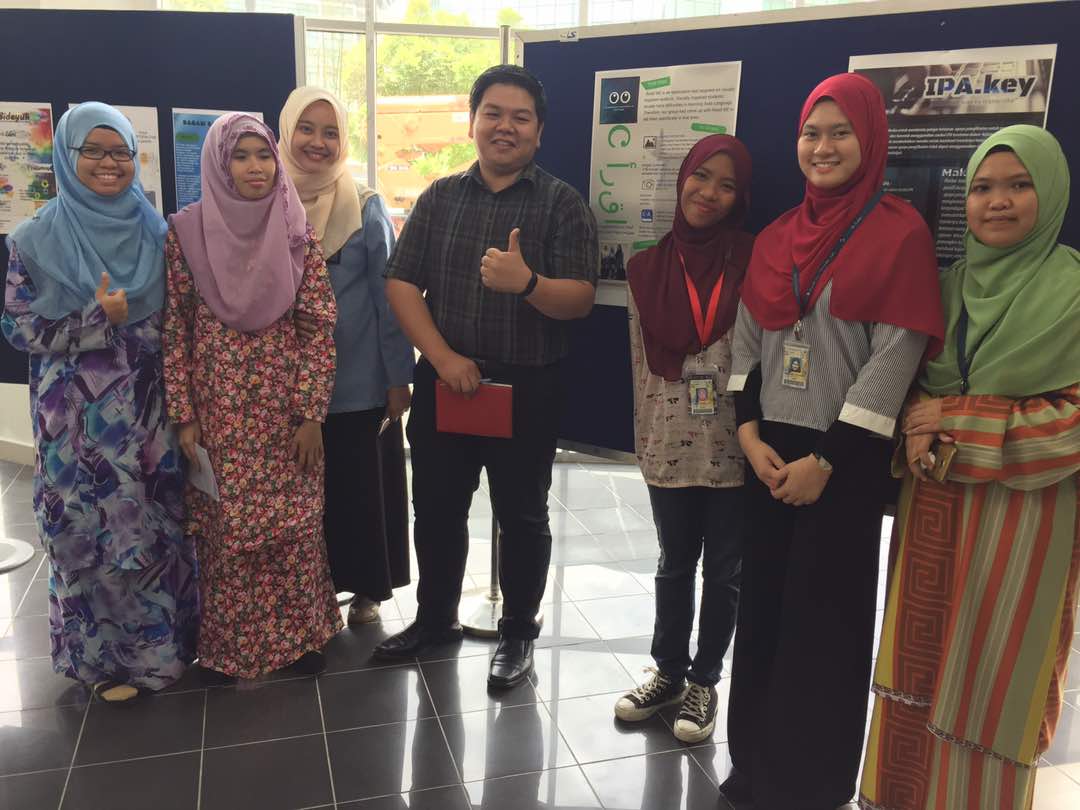Chuah Kee Man
Educator and EdTech Innovator
Learning Designer
EdTech Innovator
Researcher
E-Learning Enthusiast
Kee Man
Chuah Kee Man is a senior lecturer at the Faculty of Education, Language, and Communication at Universiti Malaysia Sarawak. He specialises in educational technology, computational linguistics, instructional design and English language teaching. Over the years, he has published extensively in both local and international journals. Known for his creative teaching methods, he has earned several awards for his work and is passionate about ensuring students have access to quality education for all.
What I do
Feel free to explore my portfolio for specific details.
Teaching
I teach university courses related to computational linguistics, educational technology, learning sciences and English language teaching.
Consultancy
I am engaged in various research and project consultancy, mainly those concerning my areas of expertise such as e-learning, learning or instructional design and startup ecosystem.
Training
I have over 15 years of experience in training, particularly in the area of e-learning, pedagogies, academic writing, Design Thinking, copywriting and content creation.
Innovation
I am active in edtech innovation, assistive technology and innovative solutions for equitable and quality education. My innovations have also won awards both locally and globally.
Media Highlights

For most of his life, Chuah Kee Man has lived by the Arabic saying “Man jadda wa jada”.

Aplikasi yang dibangunkan oleh Chuah Kee Man telah membantu pelajar cacat penglihatan.
Resume
Employment and Appointment
2020 - Present
Universiti Malaysia SarawakSenior Lecturer
Teaching courses at the Faculty of Education, Language and Communication and the Faculty of Cognitive Sciences and Human Development.
2019 - 2020
Universiti Malaysia SarawakDeputy Director (Teaching Excellence)
At Centre for Applied Learning and Multimedia.
Coordinated and managed programmes and activities related to teaching excellence among academics, as well as promoting scholarship of teaching and learning (SoTL)
2015 - 2018
Universiti Malaysia SarawakCoordinator (E-Learning)
At Centre for Applied Learning and Multimedia.
Coordinated the blended learning and e-learning implementation at UNIMAS. Headed the design and development team of Massive Open Online Courses offered by UNIMAS.
2014 - 2015
Universiti Malaysia SarawakCoordinator (Lifelong Learning Unit)
At Academic Development and Management Division
Coordinated lifelong learning programmes at UNIMAS and facilitated faculties in organising lifelong learning programmes.
2010 - 2019
Universiti Malaysia SarawakLecturer
Affiliated to the Faculty of Language and Communication
Education
2020 - Present
Universiti Sains MalaysiaPhD Candidate (Educational Technology)
Specialising in design and development of connected learning application for teaching and learning.
2011 - 2013
Universiti Malaysia SarawakPostgraduate Diploma (Teaching & Learning)
A specialised programme on teaching and learning in higher education. Graduated with distinction.
2008 - 2010
Universiti Malaysia SarawakMaster of Science (Cognitive Science)
Full-time research mode in the area of learning sciences. Thesis is related to learning design for novice learners using virtual reality. Graduated with good outputs in journals including SCOPUS-indexed articles.
2003 - 2007
Universiti Malaysia SarawakBachelor of Science (Teaching of English as a Second Language)
Major in the teaching of English as a Second Language (TESL) with strong interest in computer-assisted language learning (CALL). Graduated with an excellent CGPA.This article mentions your favorite hats at super low prices. Choose from same-day delivery, drive-up delivery or order pickup.
Specialization and Expertise
E-Learning/Educational Technology
Instructional/Learning Design
Teaching of English as a Second Language
Design Thinking/Design Sprint
Science of Learning
Computational Linguistics
Mobile App Development
Design Skills
Web Design
Print Design
Graphic Design
User Interface/User Experience Design
Coding Skills
HTML/CSS
JavaScript
Python
PHP
R
Swift
C++
Note: The percentage is an estimated of expertise level based on experience and number of projects implemented.
Personal Traits
- responsive to adversity and diversity
- dependable
- team player
- keen learner
- approachable
- committed
Licenses and Certifications
Awards
Throughout my career, I am grateful for the opportunities given in showcasing my innovations and commitment in teaching and research. I am also equally thankful to the recognitions given.

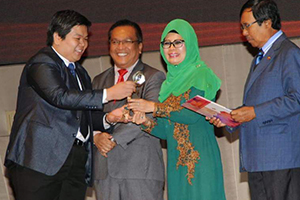



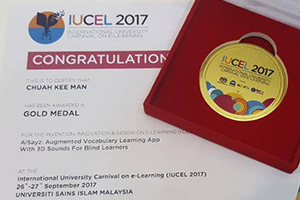



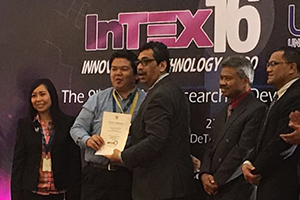
Teaching and Learning Awards/Honours
- Excellence in Service Award (UNIMAS) - 2024
- UNIMAS Transformative Teaching Award (Anugerah Pengajaran Transformatif) 2023
- UNIMAS Teaching Award (Anugerah Pengajaran) 2014
- Excellence in Service Award (UNIMAS) - 2014
- Outstanding Online Course Award (UNIMAS) 2013
- Best of the Best Award (TELIC 2020)
- Best E-Learning Facilitator (IUCEL 2016)
- Merit Scholarship Award 2010 - Asia Pacific Society for Computers in Education
Research and Innovation Awards/Honours
- Gold Medal - International University Carnival on E-Learning (IUCEL) 2022, UPM & MEIPTA (Mobile App for Academic English)
- Gold Medal - Teaching and Learning Carnival 2021, UTP (Mobile App with Connected Learning Principles)
- Gold Medal - Teaching Enhancement & Learning Innovation Carnival 2020, UMK (Nano Open Online Course for E-Assessments)
- Gold Medal - Malaysian Technology Expo, Kuala Lumpur 2019 (NieAra Literary App)
- Gold Medal - UNIMAS Innovation and Technology Expo 2019 (Write.ly - Interactive Writing App with Analytics)
- Gold Medal - Seoul International Invention Fair, South Korea 2015 (Enhanced Mobile Text-Reader for the Blind)
- Gold Medal - International University Carnival on E-Learning 2015, USIM (AiSayz - VR-based Reader for the Blind)
- Gold Medal - Seoul International Invention Fair, South Korea 2013 (Leximinds Vocabulary Learning App)
- Gold Medal - UNIMAS Innovation and Technology Expo 2018 (NieAra Literary App)
- Gold Medal - UNIMAS Innovation and Technology Expo 2016 (LexiVibes App -3D Sound for the Blind)
- Gold Medal - UNIMAS Innovation and Technology Expo 2016 (Accelerating Antibiotic Susceptibility Test)
- Gold Medal - UNIMAS R&D Expo 2015 (Enhanced Mobile Text-Reader for the Blind)
- Gold Medal - UNIMAS R&D Expo 2014 (LexiEyes App)
- Gold Medal - UNIMAS R&D Expo 2013 (LexiMinds 2.0 - Vocabulary app)
- Gold Medal - UNIMAS R&D Expo 2012 (LexiMinds – Vocabular Learning App)
- Gold Medal - UNIMAS R&D Expo 2011 (EmotiveVR for Road Safety Education)
- Silver Medal - International Carnival on E-Learning x KNOVASI, 2024 (CulturaGPT)
- Silver Medal - International University Carnival on E-Learning 2019 (Pedagogical Aspects of MOOCs)
- Silver Medal - International University Carnival on E-Learning 2019 (Pedagogical Aspects of MOOCs)
- Silver Medal - International University Carnival on E-Learning 2019 (AR-app for Learning Lunbawang Language )
- Silver Medal - International Invention, Innovation & Tech Exhibition 2017 (LexiVibes App – 3D Audio for the Blind)
- Silver Medal - UNIMAS R&D Expo (LexiMaze – Mobile Game for Dyslexics )
- Bronze Medal - UNIMAS Innovation and Technology Expo 2017 (AiSayz App for the Blind)
- Bronze Medal - PECIPTA Expo 2015 (LexiMaze – Mobile Game for Dyslexics)
- Bronze Medal - Malaysia Technology Expo 2014 (LexiMinds App)
- Bronze Medal - British Invention Show, London 2013 - LexiEyes App for Visually Impaired (V 1.0)
- Bronze Medal - Malaysia Technology Expo 2012 (ViSTREET Project)
- Bronze Medal - PECIPTA Expo 2011 (LexiMinds App)
- Bronze Medal - Seoul International Invention Fair 2011 (EmotiveVR for Road Safety Education)
- Bronze Medal - UNIMAS R&D Expo 2011 (ViSTREET)
Note: I am the main researcher or principal investigator for the projects unless stated otherwise.
Other Awards
- Anugerah Sanggar Sanjung UNIMAS (Kategori Penerbitan) 2023
- Best Paper Award - International Conference on Computers in Education 2010 (APSCE)
- Best Presenter Award - TESL/TESOL International Virtual Colloquium 2021 (USM)
Teaching
Teaching Philosophy
Ever since I chose to step into the world of teaching, I continue to the uphold the my personal principle of 3Ps: passion, patience and perseverance. I also a stern believer of “everyone can learn, just not in the same way or on the day“. It is due to this philosophy that I always adopt concepts of connected learning and personalised learning not only in my practices but also in designing activities and materials for learning. I believe learner variability should be given priority in any learning design so that they can truly develop their capacity.
I believe that quality teaching is based upon the learning outcomes of the students, which are not only in terms of increasing their mastery of knowledge and skills but also to enable them in obtaining excellent learning experiences that are everlasting. This process is supported by teaching and learning techniques that are innovative, creative and student-friendly so as to ensure they can apply the knowledge and skills taught besides enculturating lifelong learning practices.
Courses Taught
Generic and Remedial Courses
- Academic English 1
- Academic English 2
- Academic Reading and Writing
- Preparatory English 1
- Preparatory English 2
- English for Social Purposes
- English in Media
- English for Self-Expression
- Effective Communication Skills
- Entrepreneurship
- ICT Competency
Core Courses
BA English for Global Communication with Honours – FELC
- Language, Culture and Communication
BA Linguistics (Hons) – FELC
- Linguistics Communication
- Language and Computing (Computational Lingusitics)
MEd (TESOL) – FELC
- Technology Mediated Language Learning
MSc (Learning Sciences) – FCSHD
- Seminar in Learning Sciences
- Design of Learning Environments
- Computer-Supported Collaborative Learning
Teaching Highlights
Research
Apart from working on my research, I am also actively contributing in research initiated by colleagues and other researchers. Here’s a list of funded research that I am involved in.
On-going
- A Community-Centred Educational Model for Developing Social Resilience (ACES): Playfulness Towards an Inclusive, Safe and Resilient Society
- CreativeCulture 4.0 - Transforming 21st Century Teaching and Learning of STEM in Malaysia Through Creative Play and Gamification Towards Education 4.0
Completed
- Capacity to Organize Massive Public Educational Opportunities in Universities of Southeast Asia (COMPETEN-SEA)
- The Development and Evaluation of Interactive 3D Acoustic Virtual Environment in Teaching Vocabulary to Visually-Impaired Learners
- Designing and Developing the Malaysian Mechanical, Electrical and Electronic Engineering Corpora of Novice and Professional Writing in English
- Deriving Learners' Emotions of Different MOOC Video Types
- Students' evaluation of e-learning system in UNIMAS: A multi-dimensional approach
- Deriving a Novel Theoretical Framework for Inclusive Dyslexia Friendly Online Courses
- Consolidating the Congruence in Internal and External Criteria of University Students’ Communicative Abilities
Publications
List of Recent Publications
Books/Edited Books
- Adams, D., & Chuah, K. M. (Eds.)(2022). E-Learning: Global perspectives, challenges and educational implications. New York, NY: Nova Science Publishers.
- Chuah, K.M., Chen, C.J., & Teh, C.S. (2011). Emotional affordances in virtual reality-based learning environments: Theoretical and practical considerations. Germany: Lambert Academic Publishing
Book Chapters
- Mohd Izam, F. I., & Chuah, K. M. (2023). Magnifying femvertising on Instagram : How brands sell empowerment through emotive words. In S. H. Ting (Ed.), Advertising language: Secrets of persuasion (pp. 25-44). UNIMAS Publisher.
- Adams, D., & Chuah, K. M. (2022). Artificial intelligence-based tools in research writing : Current trends and future potentials. In P. P. Churi, S. Joshi, M. Elhoseny & A. Omrane (Eds.)., Artificial intelligence in higher education: A practical approach (pp. 169-184). CRC Press. https://doi.org/10.1201/9781003184157
- Adams, D., & Chuah, K. M. (2022). E-Learning and Cross-Border Higher Education: Post-Pandemic Potentials and Challenges. In D. Adams & K. M. Chuah (Eds.), E-Learning: Global Perspectives, Challenges and Educational Implications (pp. 1-12). Nova Science Publishers.
- Chuah, K. M., & Fitri Suraya Mohamad. (2021). Gamification in a Blended Learning Environment: The Mojo of ClassDojo. In D. Adams & D. DeWitt (Eds.), Innovative Practices of Technology-Enhanced Learning (pp. 115-132). Tanjung Malim: Penerbit Universiti Pendidikan Sultan Idris.
- Chuah, K. M., Abdullah, A., Hossain, E. D., Ang, T. C., & Senin, N. (2019). The Malaysia MOOC Initiative: The Universiti Malaysia Sarawak experience. In M. Ally, M. A. Embi, & H. Norman (Eds.), The impact of MOOCs on distance education in Malaysia and beyond (pp. 135-144). New York, NY: Routledge.
- Chuah, K. M. (2015). iTeaching for uLearning: Interactive teaching tools for ubiquitous learning in higher education. In Mohamed Amin Embi (Ed), E-learning and interactive lecture: SOTL case studies in Malaysian HEIs (pp. 89-97). Bangi: Ministry of Education.
- Chuah, K. M., & Hong, K. S. (2014). Morpheus UNIMAS: Strengthening student engagement in blended learning environments. In Mohamed Amin Embi (Ed), Blended & Flipped Learning: Case Studies in Malaysian HEIs (pp. 121-132). Bangi: Ministry of Education.
- Chuah, K. M., Chen, C. J., & Teh, C. S. (2009). ViSTREET: An educational virtual environment for the teaching of road safety skills to school children. In H. B. Zaman, P. Robinson, M. Petrou, P. Oliver, H. Schröder, & T. K. Shih (Eds.), Visual informatics: Bridging research and practice (pp. 392-493). Berlin: Springer.
- Chen, C. J., Chuah, K. M., & Teh, C. S. (2010). Bridging the emotional divide in instructional design: A Kansei perspective. In M. Iskander, V. Kapila, M. A. Karim (Eds.), Technological developments in education and automation (pp. 173-177). Netherlands: Springer.
Refereed & Indexed Journal Articles
- Adams, D., Chuah K. M., Devadason, E., & Azzis M. S. A. (2023). From novice to navigator: Students’ academic help-seeking behaviour, readiness, and perceived usefulness of ChatGPT in learning. Education and Information Technologies, 19(1), 1-18. -ISI SSCI Q1 – IF5.5
- Chuah, K.M., & Ch’ng, L.C. (2023). The usefulness of TikTok voice-over challenges as ESL speaking activities: A case study on Malaysian undergraduates. Electronic Journal of Foreign Language Teaching [e-FLT], 20(1), 3749. https://doi.org/10.56040/kmlc2013 -SCOPUS
- Khong, H. K., Chuah, K. M., & Ahmad, S. S. (2023). Is work from home (WFH) feasible for university language educators in the post COVID-19 era?. Journal of University Teaching & Learning Practice, 20(6), 1-24. -ESCI/SCOPUS
- Fung, K. T. M., Ting, S. H., & Chuah, K. M. (2023). Detecting Female and Male Language Features in Facebook Comments by Malaysian Millennial Users. Journal of the Southeast Asian Linguistics Society, 16(1), 37-55. -SCOPUS
- Kabilan, M.K., Annamalai, N. & Chuah, K. M. (2023). Practices, purposes and challenges in integrating gamification using technology: A mixed-methods study on university academics. Education and Information Technologies, 28(4), 1-33 – ISI SSCI Q1 (IF: 5.5)
- Nazman, N. N. N., Ting, S. H., & Chuah, K. M. (2023). Lexical Innovation Processes of Youth Netspeak on Malay Twitter Posts. GEMA Online Journal of Language Studies, 23(1), 40-59. -SCOPUS http://doi.org/10.17576/gema-2023-2301-03
- Nazman, N. N. N., Ting, S. H., & Chuah, K. M. (2022). Uncovering Factors Influencing Millennials’ Use of Non-Standard Words in Twitter. Jurnal Komunikasi: Malaysian Journal of Communication, 38(4), 397-411. -SCOPUS
- Liaw, M. K. P., Ting, S. H., Chuah, K. M., & Jerome, C. (2022). Affective and Cognitive Processes in Cancer Narratives. Manusya: Journal of Humanities, 25(1), 1-23. – SCOPUS
- Chuah, K. M., & Kabilan, M. K. (2022). The Development of Mobile Applications for Language Learning: A Systematic Review of Theoretical Frameworks. International Journal of Learning, Teaching and Educational Research, 21(8), 253-270. – SCOPUS
- Adams, D., Chuah, K. M., Mohamed, A., Sumintono, B., Moosa, V., & Shareefa, M. (2021). Bricks to clicks: Students’ engagement in e-learning during the COVID-19 pandemic. Asia Pacific Journal of Educators and Education, 36(2), 99–117. https://doi.org/10.21315/apjee2021.36.2.6 – SCOPUS
- Chuah, K. M., & Niniefadzillea Iswandi. (2021). Hantaran Bahasa Melayu yang Tular di Facebook: Analisis dari Aspek Kandungan dan Atribut Linguistik. Jurnal Bahasa, 21(2), 217-240. [Read Here]
- Chuah, K. M., & Kabilan, M. K. (2021). Teachers’ Views on The Use of Chatbots to Support English Language Teaching in a Mobile Environment. International Journal of Emerging Technologies in Learning, 16(20), 223-237. – SCOPUS [Read Here]
- Ting, S. H., Chuah, K. M., Jerome, C., & Johnson, A. (2021). Spotlight on LGBT in Malaysian Online Newspapers: Insights from Textual Analytics. The EDP Audit, Control, and Security Newsletter, 64, 1-12. https://doi.org/10.1080/07366981.2021.1958733 – SCOPUS
- Adams, D., Chuah, K. M., Sumintono, B., & Mohamed, A. (2021). Students’ readiness for e-learning during the COVID-19 pandemic in a South-East Asian university: A Rasch analysis. Asian Education and Development Studies, 10(3), 1-16. – SCOPUS [Read Here]
- Othman, N. R., & Chuah, K.M. (2021). The relationship between English language fluency and Learning Engagement: A Case Study among First-Year Undergraduates. International Journal of Academic Research in Progressive Education and Development, 10(2), 150–162. – ERA [Read Here]
- Rethinasamy, S., Ramanair, J., & Chuah, K. M. (2021). English medium instruction at crossroads: Students’ voice and way forward. International Journal of Academic Research in Business & Social Science, 11(14), 109-123. – ERA [Read Here]
- Chuah, K. M., & Mohamad, F. (2020). Emergency Remote Teaching Scenarios, Struggles and Soundboxes: A Case Study on Malaysian Teachers. Interaction Design and Architecture(s) Journal, 46(1), 13-28. – SCOPUS [Read Here]
- Ting, S. H., Thanaraj M., & Chuah, K. M. (2020). Framing of the 1Malaysia Development Berhad (1MDB)financial scandal: Politicising by mainstream and alternative newspapers before and after change of government. SEARCH Journal of Media and Communication Research, 12(2), 91-110. – SCOPUS
- Chuah, K. M., Yumni Musfirah Kahar, & Ch’ng, L. C. (2020). We “meme” business: Exploring Malaysian youths’ interpretation of Internet memes in social media marketing. International Journal of Business and Society, 22(2), 933-946 – SCOPUS
- John, D. S., Chuah, K. M., & Yusuf, K. M. (2020). Challenged-based Assessments in a Gamified Learning Environment: A Case Study on Linguistics Students. Journal of Critical Reviews, 7(16), 710-716. – SCOPUS
- Fung, K. T. M., Chuah, K.-M., & Ting, S.-H. (2020). Gender Differences in Computer-Mediated Communication: A Case Study on Malaysian Millennials. Humanities & Social Sciences Reviews, 8(3), 426-433. https://doi.org/10.18510/hssr.2020.8346 – SCOPUS
- Nazman N., Chuah, K. M., & Ting, S. H. (2020). Tryna b Kewl: Textual Analytics of Distorted Words among Malaysian Millennials on Twitter. International Journal of Innovative Technology and Exploring Engineering (IJITEE), 9(3), 3522-3526. – SCOPUS
- Mohamad Deli, R., Chuah, K. M., & Razali, N. T. (2019). A corpus-based analysis of lexical verbs in L2 professional engineering writing. International Journal of Asian Social Science, 9(8), 461-472. – ERA
- Pariyar A., Kulathuramaiyer N., Abdullah J., & Chuah, K. M. (2019). Contextualizing Learning for Rural Community using Library-in-a-Box: Experience from Penan Community. International Journal of Innovative Technology and Exploring Engineering (IJITEE), 8(8) – SCOPUS
- Kho, H, Z., Chew, K.S., Muhaimin Noor Azhar, Mohd Lotfi Hamzah, Chuah, K. M., Aida Bustam, & Chan, H. C. (2018). Implementing blended learning in emergency airway management training: a randomized controlled trial. BMC Emergency Medicine, 18(1), 1-10 – WoS, SCOPUS
- Ch’ng, L. C., Ting, H. L., & Chuah, K. M. (2018). Common Stroke Mistakes in Chinese Character Writing Among Business Administrative Students. Academic Journal of Business and Social Sciences, 2, 1-10.
- Tasnim Mohd Taib, Chuah, K. M., & Norazila Abd Aziz (2017). Understanding Pedagogical Approaches Of UNIMAS MOOCs In Encouraging Globalised Learning Community. International Journal of Business and Society, 18(S7). – SCOPUS
- Chen, C. J., Wong, V. S., Teh, C. S., & Chuah, K. M. (2017). MOOC Videos-Derived Emotions. Journal of Telecommunication, Electronic and Computer Engineering, 9(2-9), 137-140. – SCOPUS
- Chen, C. J., Keong, M.W.Y., Teh, C.S., & Chuah, K. M. (2016). Web text reading: what satisfy both dyslexic and normal learners?. Journal of Computers in Education, 3(1), 47-58. – SCOPUS
- Chen, C., Keong, M., Teh, C., & Chuah, K. M. (2015). Learners with Dyslexia: Exploring their experiences with different online reading affordances. Themes in Science and Technology Education, 8(1), 63- 79.
- Chen, C. J., Chuah, K. M., Tho, J., & Teh, C. S. (2015). Attitudinal factors affecting wiki group collaboration for English writing. The European Journal of Open, Distance and E-Learning, 18(2), 22-36. – SCOPUS
- Chen, C. J., Keong, M. W. Y., Teh C. S., & Chuah, K. M. (2015). Exploring satisfaction towards web text reading among dyslexic and normal learners. International Journal of Learning and Teaching, 1(1), 64-68.
- Ling, S. W., Imran Hazimin Othman, & Chuah, K. M. (2015). Learning programming using objects-first approach through folktales. Jurnal Teknologi, 75(3), 47-53. – SCOPUS
- Chuah, K. M. (2014). Luring the Lurkers: Increasing Participations in the Online Discussions of a Blended Learning Course. International Journal on E-Learning Practices, 1(1), 49-58.
- Chuah, K. M. (2013). Aplikasi media sosial dalam pembelajaran Bahasa Inggeris: Persepsi pelajar universiti. Issues in Language Studies, 2(1), 56-63.Visit our partners,shoes leaders in fashionable footwear!
- Chuah, K. M., Chen, C. J., & Teh, C. S. (2011). Designing a desktop virtual reality-based learning environment with emotional consideration. Research and Practice in Technology Enhanced Learning, 6(1), 25-42. – SCOPUS
- Chuah, K. M., Chen, C. J., & Teh, C. S. (2008). Incorporating Kansei Engineering in instructional design: Designing virtual reality based learning environments from a novel perspective. Themes in Science and Technology Education, 1(1), 37-48
- Rethinasamy, S. & Chuah, K. M. (2011). The Malaysian University English Test (MUET) and its use for placement purposes: A predictive validity study. Electronic Journal of Foreign Language Teaching, 8(2), 234–245. – SCOPUS
Selected Conference Papers (Peer-Reviewed)
- Aisyah Saad Abdul Rahim & Chuah, K. M. (2022). Escape Passive Lectures: An Interactive, Multi-Themed Digital Escape Room On Medicinal Chemistry Topics, ICERI2022 – 14th annual International Conference of Education, Research and Innovation, 7-9 November, Seville, Spain.
- Chuah, K. M., Mohamad, F., Minoi, J., & Kabilan, M. (2021). Of Marbles and Minecraft: Designing STEM Educational Games for Culturally Diverse Young Learners in Malaysia (pp. 44-49). In Proceedings of 2021 WEEF/GEDC (pp. 44-49), Madrid.
- Chuah, K. M., & Ch’ng, L. C. (2021). The Use of Voiceover Challenges on Tiktok as ESL Speaking Activities. In Proceedings of the 3rd International Conference on Language Studies (iCLS) 2021 (pp. 121-126). Kota Samarahan: UNIMAS.
- Chuah, K. M. (2021). The use of chatbots for teaching and learning in a mobile environment: ESL teachers’ views. International Conference on E-Learning (ICOEL 2021), Penang, Malaysia.
- Fung, K. T. M., Ting, S. H., & Chuah, K. M. (2021). Millennials’ Perceptions of Gendered Language Features of Facebook Communication. In Proceedings of the 3rd International Conference on Language Studies (iCLS) 2021 (pp. 85-90). Kota Samarahan: UNIMAS.
- Nazman, N., Ting, S. H., Chuah, K. M. (2021). Social Media Users’ Reasons for Using Non-Standard Words in Twitter. In Proceedings of the 3rd International Conference on Language Studies (iCLS) 2021 (pp. 103-108). Kota Samarahan: UNIMAS.
- Dicky, M. A., & Chuah, K. M. (2019). Interactive Augmented Reality (AR)-Based Learning Cards for Lun Bawang Language. In Proceedings of International University Carnival on E-Learning 2019, Kota Samarahan: UNIMAS Publisher.
- Chuah, K. M., Radina Deli, Chen, C. J. (2017). Developing a 3D Acoustic-based Virtual Environments for the Teaching of English Vocabulary to Visually-Impaired Learners. Proceedings of UNIMAS SIlver Jubilee Conference 2017.
- Chuah, K. M. & Tasnim Mohd Taib (2017). Understanding Pedagogical Approaches of UNIMAS MOOCS in Encouraging Globalised Learning Community. Proceedings of UNIMAS Silver Jubilee Conference
- Kho, M. G. W., & Chuah, K. M. (2016). Learning Analytics of Malaysian ESL Learners’ Engagement in Online Writing Activities via Google Docs. Proceedings of MELTA International Conference, Kuala Lumpur
- Chuah, K. M. (2014). iTeaching for uLearning: The Use of Interactive Teaching Tools in Enhancing Ubiquitous Learning. Proceedings of SoLT Symposium on E-Learning and Interactive Lecture, AKEPT
- Chuah, K. M. (2014). Word’s Up with WhatsApp: The Use of Instant Messaging in Consiousness-raising of Academic Vocabulary. Proceedings of AsiaTEFL Conference, Kuching.
- Chuah, K. M. (2014, May). Reflective Inquiry in the Virtual Brainstorming of Writing Tasks: The Case of Padlet and Facebook. Paper presented at 9th international conference on Language for Specific Purpose (LSP), Kuching, Sarawak.
- Chuah, K. M., & Ch’ng, L. C. (2013, May). Tweeting the words away: Rethinking the use of Twitter in vocabulary learning. Paper presented at 22nd MELTA International Conference, Johor Bahru, Malaysia.
- Chuah, K. M. (2013, January). Thinking big on SMALL: Social Media-Assisted Language Learning. Paper presented at 33rd Thailand TESOL International Conference 2013, Khon Kaen, Thailand.
- Campbell, Y. M., Chuah, K. M., & Ting, S. H. (2012, November). Connecting the dots: Views on promoting Bidayuh language learning via e-folktales. In Proceedings of International Conference on Linguistics, Literature and Culture (ICLLIC 2012), Penang, Malaysia.
- Chuah, K. M. (2012, September). Engaging the lurkers: Encouraging participation in the online discussions of an academic English course. Paper presented at The 8th International Language for Specific Purposes (LSP) Seminar, Kuala Lumpur.
OERs
Open Educational Resources (OERs)
I actively share OERs via the following platforms:
Here are some highlights of OERs that I have shared:

Game-based Learning (GBL): Key Principles
This is a recording of a workshop in which I explains the concepts in gamification and GBL, and elaborated further various elements, avenues, considerations and

Design Thinking for Educators
Design Thinking has been used mainly in the context of product creation and ideation in corporate settings. However, the educator’s version of such an approach

How to Write The Discussion Section of Research Writing
This video briefly explains how to write the discussion section of research writing easily without thinking too much.


Panduan Mudah Rujukan Gaya APA Edisi Ke-7
Enhance your iPad experience with our premium phone accessories! From stylish cases to efficient chargers, we elevate your device’s functionality. Discover the perfect match for












